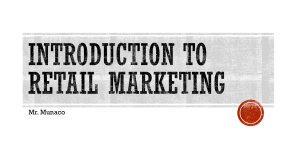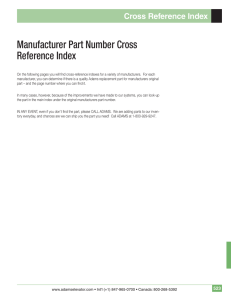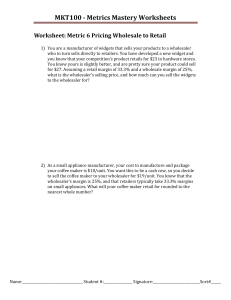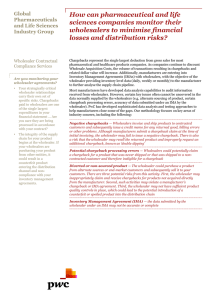A Better Way to Satisfy Distributor Demands
advertisement
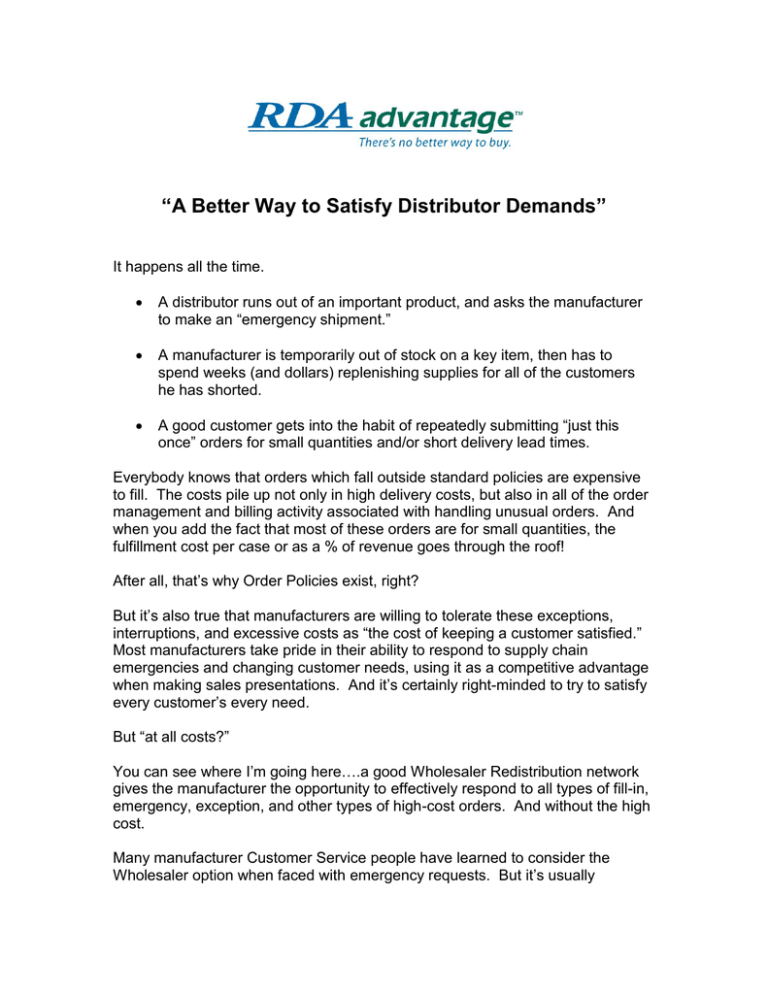
“A Better Way to Satisfy Distributor Demands” It happens all the time. A distributor runs out of an important product, and asks the manufacturer to make an “emergency shipment.” A manufacturer is temporarily out of stock on a key item, then has to spend weeks (and dollars) replenishing supplies for all of the customers he has shorted. A good customer gets into the habit of repeatedly submitting “just this once” orders for small quantities and/or short delivery lead times. Everybody knows that orders which fall outside standard policies are expensive to fill. The costs pile up not only in high delivery costs, but also in all of the order management and billing activity associated with handling unusual orders. And when you add the fact that most of these orders are for small quantities, the fulfillment cost per case or as a % of revenue goes through the roof! After all, that’s why Order Policies exist, right? But it’s also true that manufacturers are willing to tolerate these exceptions, interruptions, and excessive costs as “the cost of keeping a customer satisfied.” Most manufacturers take pride in their ability to respond to supply chain emergencies and changing customer needs, using it as a competitive advantage when making sales presentations. And it’s certainly right-minded to try to satisfy every customer’s every need. But “at all costs?” You can see where I’m going here….a good Wholesaler Redistribution network gives the manufacturer the opportunity to effectively respond to all types of fill-in, emergency, exception, and other types of high-cost orders. And without the high cost. Many manufacturer Customer Service people have learned to consider the Wholesaler option when faced with emergency requests. But it’s usually presented as “an option for the customer to consider,” not “the preferred way to fill unusual orders. There are a few manufacturers who have worked with their Wholesalers and customers to make this a seamless process. They establish and enforce order minimums and lead times for direct service. But they will still accept small and emergency orders; they just forward them to the appropriate wholesaler, who fills the order and bills the customer. This type of program requires some coordination and cooperation, but embodies everything that’s right about a good Manufacturer/Wholesaler relationship: 1. Acceptance by the Manufacturer that Wholesalers should fill high-cost orders 2. Acceptance by the Wholesaler that their highest value to the Manufacturer is their ability to fill high-cost and other difficult orders 3. Willingness to work together for the benefit of the Distributor If you’re a Manufacturer who would like to cut down on high-cost emergency orders, why not look into establishing this program with one or more of your Wholesalers? If you’re a Wholesaler who wants to build volume and strengthen your relationship with key suppliers, why not suggest this program to a few Manufacturers? And if we can help you get off the dime, just give us a call. Dave DeWalt is President of Franklin Foodservice Solutions. His company works with manufacturers in the foodservice and jan-san channels to improve profitability by tightening the links between Supply Chain Realities and Sales and Marketing Decisions. For much more on Price Structure, Redistribution Strategy, Product Line Optimization, and other services, please visit www.franklin-foodservice.com Disclaimer: The views and opinions expressed in this article are those of the author and do not necessarily reflect the views and opinions of RDA Advantage, or of the individual member companies.
